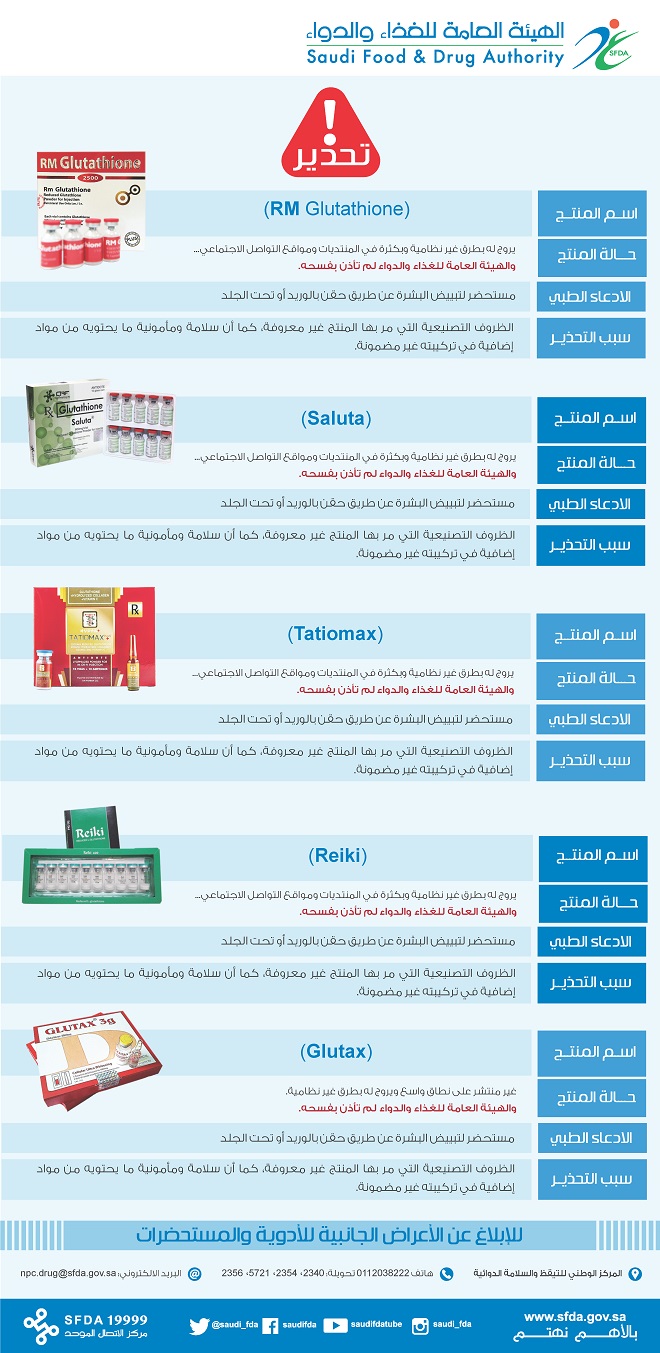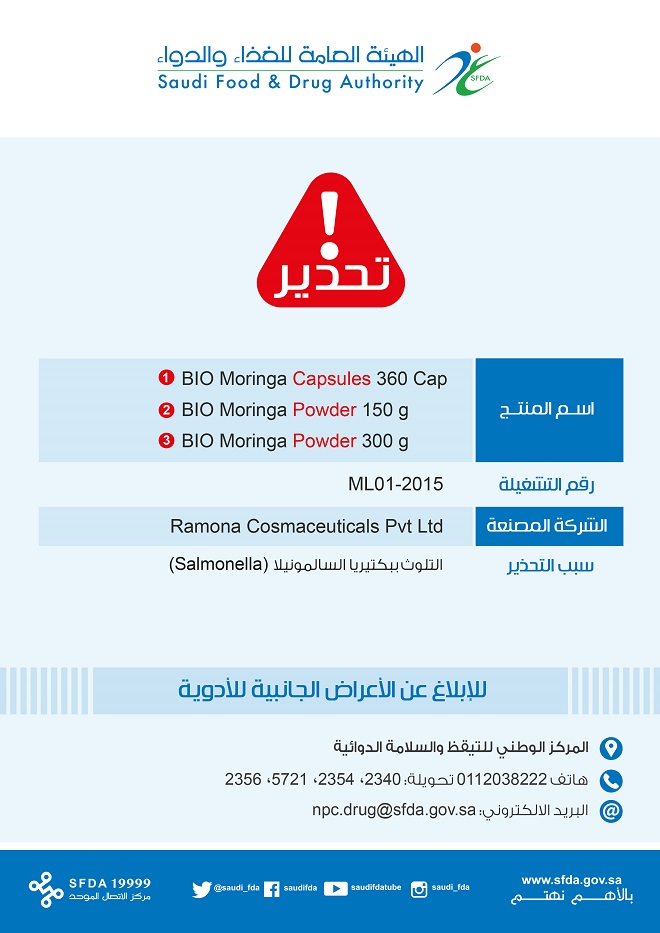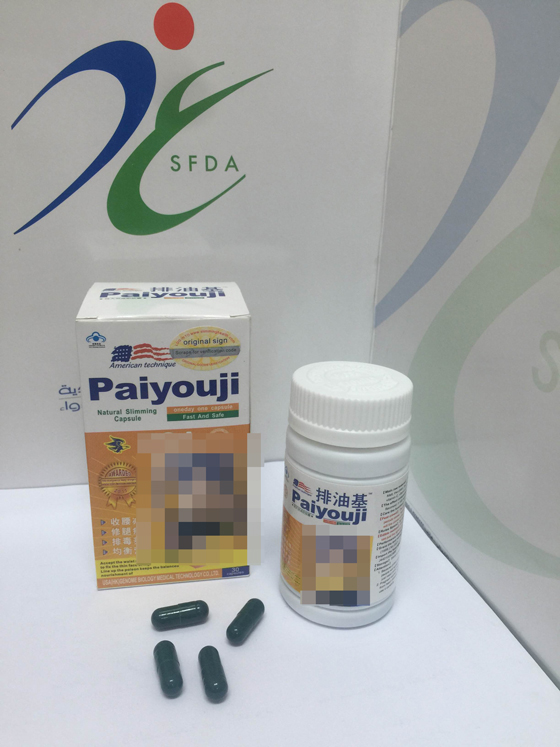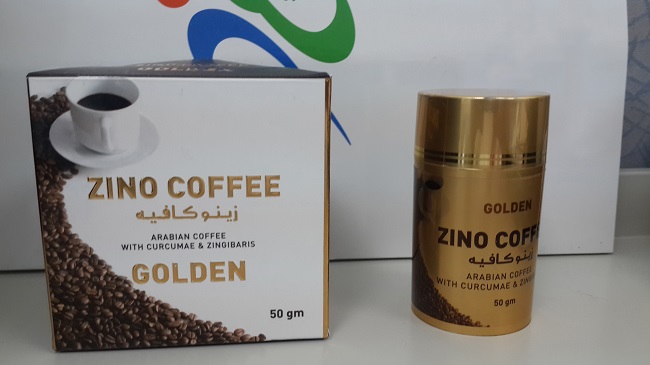SFDA Warns From Skin - Whitening Injections
2015-11-30
SFDA warned from all skin-whitening injections products that contain ‘ Glutathione’ due to their risks, non-safety and non-security of the content of their additive substances, stressing that such products are not registered within SFDA and are illegally marketed.









